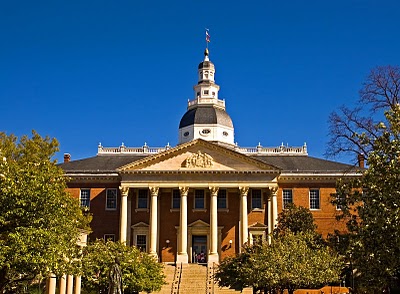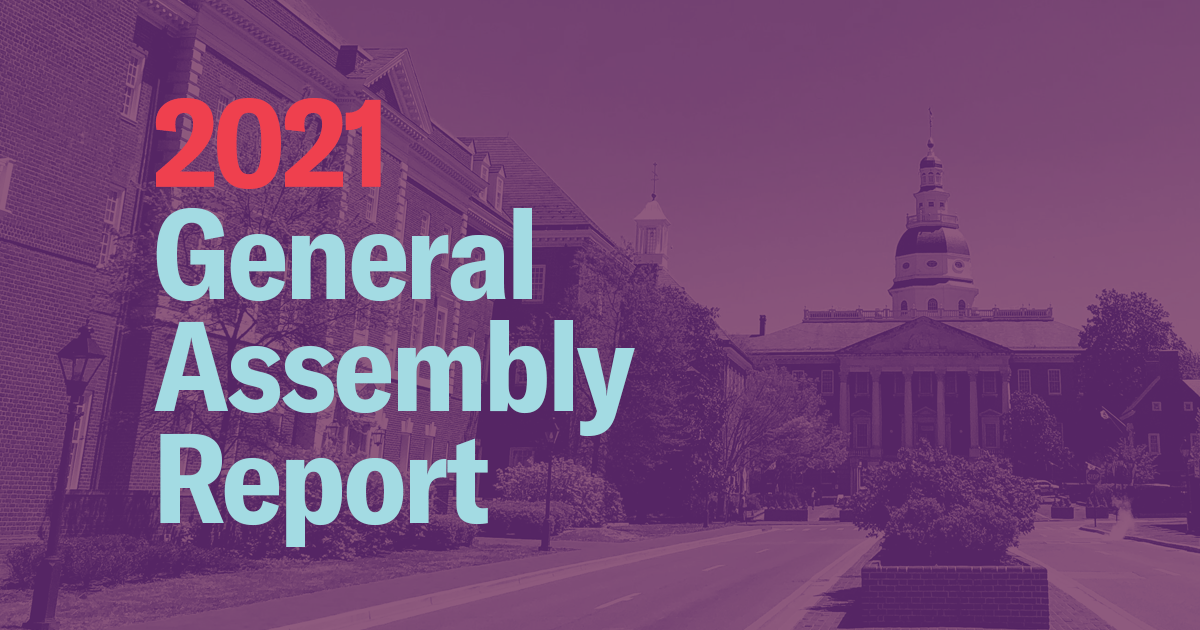ACLU of Maryland 2021 General Assembly Report
IMPACTFUL POLICE REFORM IN MARYLAND
Anton’s Law/MPIA Reform
For the past few years, the ACLU of Maryland, families impacted by police violence, and our partners in the Maryland Coalition for Justice and Police Accountability have been fighting tirelessly in Annapolis to amend the Maryland Public Information Act to allow public disclosure of records of police misconduct investigations.
Under current law, police misconduct records are personnel records, meaning they are restricted from public disclosure by law. In other words, if you file a complaint of police misconduct, you cannot find out how the department investigates your complaint. All you can find out is the outcome and the discipline.
Finally, in this session, our efforts were successful with the passage of SB 178: Anton’s Law. The bill was named after 19-year-old Anton Black, a young Black man who was killed by police in Greensboro, Maryland after a police chief falsified records to hire a white officer with a proven record of abuse of Black people.
Anton’s Law declares police misconduct records are not personnel records. Thus, it will allow victims of police brutality to know about misconduct via a public information act request. This will better shed light on the quality of misconduct investigations and provide victims with the information they need to achieve justice.
LEOBR
Enacted in 1974, the Maryland Law Enforcement Officer Bill of Rights (LEOBR) covers two components of the disciplinary process: the conduct of internal investigations that may lead to a recommendation of disciplinary action against a police officer; and procedures that must be followed once an investigation results in a recommendation of discipline. The current LEOBR grants a police officer special due process rights that no other state employee has.
Police reform advocates and impacted families have been calling for a repeal of the Law Enforcement Officers Bill of Rights for decades. In this session, the Maryland Coalition for Justice and Police Accountability made repealing and replacing LEOBR a top priority for the 2021 legislative session. The goal was to minimize the extent to which law enforcement officers have extra due process rights in disciplinary proceedings, create a streamlined system that focuses on the substantive question of guilt or innocence without unnecessary procedural barriers that prevent or delay discipline, and establish community oversight via external oversight bodies that could investigate, adjudicate and impose discipline through local legislation.
In this session, we were successful in repealing LEOBR with the passage of HB 670. However, the General Assembly failed to implement the most important element of police accountability – community oversight. While HB 670 has aspects of civilian participation in the disciplinary process, community oversight means that there is a community-controlled and operated entity that is external to the police department or state-imposed processes that has the power to investigate, adjudicate, and impose discipline.
Furthermore, the General Assembly maintained trial boards which have the final say on police discipline and can overturn decisions made by the administrative charging committee. While the boards are now majority civilian, we fundamentally oppose trial boards as an unnecessary procedural barrier to prevent or delay discipline for police misconduct and abuse.
Limiting Police Use of Force
SB 71 establishes a statewide police use of force statute for Maryland, which until now was one of the few remaining states without one. Most importantly, this bill raises the legal standard from “objectively reasonable” under federal law to authorize law enforcement officers to use force only when it is necessary and proportional, based on the totality of the circumstances. It also requires officers to de-escalate, cease using force as soon as possible, intervene to prevent excessive use of force, and obtain medical assistance after use of force incidents. While this bill does not include everything we wanted, it is an important step to reduce police killings and excessive force. We will monitor how courts interpret this statute and keep working toward solutions to hold officers and agencies accountable for police violence.
Local Control of the Baltimore Police Department
The ACLU along with the Maryland Coalition for Justice and Police Accountability supported a bill to create a pathway to restore local control of the Baltimore Police Department. The bill establishes an advisory board to study potential issues related to the transfer of control of the police department. Additionally, it establishes the Baltimore Police Department as an agency and instrumentality of Baltimore City, rather than the State of Maryland, contingent on the passage of an amendment to the Charter of Baltimore City and the ratification of the amendment by voters.
Remove School Police and Fund Student Mental Health Resources
As a part of the Maryland Coalition for Justice and Police Accountability (MCJPA), the ACLU advocated for two bills – HB 496 and HB 1089 – that were introduced this session to remove School Resource Officers (SROs) from public schools and reallocate funding to other critical mental and emotional health school staffing supports. The bills did not receive a vote or advance in the House.
There is a diversity of views within the legislature on this issue. Moving forward, we must continue to educate lawmakers on the importance of removing police from schools to secure more support for future passage.
DUE PROCESS FOR CHILDREN IN THE LEGAL JUSTICE SYSTEM
Defending Children’s Right to Remain Silent
There is currently no law in place that requires an attorney consultation before questioning a child. During this session, the ACLU and our partners continued progression on HB 315 / SB 136, which would have required an attorney to be present when a child is first interrogated by law enforcement. The bills would ensure that parents/guardians for the child are notified when the child is taken into custody. The bill required amendments to resolve technical issues from the 2020 session.
HB 315 as amended successfully passed the House but did not receive a vote in the Senate Judicial Proceedings Committee.
Reform of Legal Justice System for Children
The ACLU along with its partners advocated for HB 1187 which would improve the juvenile justice system by raising the minimum age of juvenile court jurisdiction, banning imprisonment of children for low-level offenses, and removing barriers to diversion of children out of the system.
The bill passed the House and was passed favorably with amendments by the Senate Judicial Proceedings Committee, but was stripped of its core components, leaving only the requirement of a supplemental report of the Juvenile Justice Reform Council. Once reaching the Senate floor on Sine Die, the bill was passed unanimously and has become law without the Governor’s signature. Another comprehensive bill will be introduced in the 2022 session.
POLITICS OUT OF PAROLE
Parole Reform
The ACLU has long supported reform to our parole system for Marylanders given parole-eligible life sentences. Maryland is one of only three states in the U.S. where the Governor has to approve the recommendations of the Parole Commission before an individual may be paroled. This unusual process injects politics into the parole system and has resulted in very few people being paroled during the last three decades. After a decade-long battle, we were successful in passing SB 202, which eliminates the need for the Governor’s approval of parole. To secure enough votes to override a veto, the bill also required that persons sentenced to life with the possibility of parole after October 2021 serve at least 20 years before becoming eligible for parole (with the application of diminution credits).
Following session, the governor has vetoed this legislation. We will work with General Assembly leadership to override this veto.
ADDITIONAL LEGAL JUSTICE REFORM
Cannabis Decriminalization
During this session, the ACLU continued to work on a bill to reverse the harmful effects of the failed war on drugs in Maryland.
We supported HB 324 / SB 143, which would have raised the civil possession amount from 10 grams to one ounce of marijuana, bringing Maryland into line with the majority of states that have decriminalized simple possession. In addition, the bill would have addressed an increasing trend in which people in possession of fewer than 10 grams of marijuana are still charged with possession with the intent to distribute – charges most often targeted at Black and Brown people. The bill created a rebuttable presumption that possession of 1 ounce or less of marijuana alone is not enough to charge someone with possession with intent to distribute.
HB 324 successfully passed the House within the first few weeks of the legislative session, but unfortunately, the bill did not receive a vote in the Senate Judicial Proceedings Committee.
Commissary Reporting
The ACLU continued to push for greater transparency and accountability behind bars this session. We supported HB 100, which would have required the Department of Public Safety and Correctional Services to report the cost of calls and commissary products such as medication and feminine hygiene products. The bill also required Maryland Correctional Enterprises to include in their annual report the demographics of workers and their wages. This bill passed the House, but unfortunately, the bill did not receive a vote in the Senate Judicial Proceedings Committee.
PROTECT IMMIGRANTS IN MARYLAND
Trust Act
While we made progress with our coalition this session with our immigrants’ rights work, the Trust Act did not pass. Although we feel we had the votes for a veto-proof majority, Senate leadership failed to bring the bill to a vote on the floor. However, they passed another bill that we supported, Dignity Not Detention, which was amended to include extra police protections from Trust. This bill bans private immigration detention centers and prohibits local governments from contracting to house ICE detainees, and also establishes limitations around the harmful 287(g) program.
Although this is an important bill to provide basic protections for immigrants in Maryland, we were disappointed the Trust Act did not pass, and we will keep fighting with our partners until we end the federal 287(g) program everywhere in Maryland.
EXPAND THE VOTE
Value My Vote Act
The ACLU supported HB 222 which expands access to the ballot for eligible incarcerated voters by requiring the State Board of Elections to adopt regulations establishing a program to inform individuals who are incarcerated in a correctional facility and have the right to vote of upcoming elections and how they may exercise their right to vote. The bill applies to both State and local correctional facilities, including those operated by the Department of Public Safety and Correctional Services, the Department of Juvenile Services, and the sheriff of a county or other unit of government with responsibility for operating a local correctional facility or county detention center.
Under the new law, the regulations must require SBE or local boards to:
- Disseminate information on eligibility requirements to register to vote and voter registration applications to eligible voters in a correctional facility at least 30 days before the deadline to register to vote before each election;
- Disseminate instructions on absentee voting, absentee ballot applications, and absentee ballots before each election in a timely manner;
- Provide frequent opportunities for eligible voters in a correctional facility to register to vote and to vote; and
- Provide for the timely return of voter registration applications, absentee ballot applications, and absentee ballots completed by eligible voters in a correctional facility.
Additionally, the bill requires DPSCS to:
- Provide each individual who is released from a correctional facility with a voter registration application and documentation informing the individual that the individual’s voting rights have been restored;
- Display a sign in each parole and probation office indicating that any individual who is no longer incarcerated has the right to vote; and
- Post a notice on the department’s website indicating that any individual who is no longer incarcerated has the right to vote.
Central Booking Ballot Drop Box
SB 525 expands access to the ballot for eligible incarcerated voters by requiring the Baltimore City centralized booking facility to provide a ballot drop box that eligible voters incarcerated at the facility may use to submit absentee ballot applications, absentee ballots, and voter registration forms to SBE or a local board of elections.
Under the new law, the Baltimore City centralized booking facility must:
- Disseminate written information about how and when to use the ballot drop box to each eligible voter incarcerated at the facility; and
- Monitor the ballot drop box at all times.
RIGHT TO EDUCATION
Non-Discrimination in Publicly Funded Schools
The ACLU’s efforts to require that every school receiving public taxpayer dollars is prevented from discriminating initially enjoyed broad support with HB 155 / SB 98. An amended version of HB 155 passed the House.
The bill was amended in the Senate Judicial Proceeding Committees with language that weakened the bill’s purpose and removed a key provision of anti-discrimination policy language and a remediation process for discrimination. The amended Senate bill reached the Senate floor but did not receive a second reading.
FY22 Budget for Education
There has been a large and growing gap in education funding since the legislature and governor cut the state’s education funding formula back in 2008. And since the governor vetoed the sweeping education reform bill Blueprint for Maryland's Future last year, the FY22 budget for education — funding for School Year 2021-22 — could have been disastrous. To ensure that education funding got back on track and that schools would have the resources to address learning recovery due to the COVID-19 pandemic, the ACLU focused on securing additional funding for school districts with the lowest-wealth that have been the furthest from funding "adequacy." Overall, schools will receive approximately $233 million more than they received last year. Here are the highlights of the education budget, contained in HB 588 - Budget Bill:
- Maintains current and expands some "Blueprint" programs: Schools with 80% poverty will continue receiving funding for their community school coordinator and healthcare professional. Schools with 70% poverty have been added to receive funding for these staff positions this coming school year.
- New per-pupil Concentration of Poverty funding will begin phasing in for schools with 80% poverty.
- Additional funding added last year for increased teacher salaries, special education, and tutoring have been maintained at the same level.
- Due to a projected loss in funds triggered by a significant decline in enrollment, $209 million was added to the education budget as a "hold harmless" to ensure districts received more funding than they did last year.
- Slightly increases funding for early learning.
- Over $160 million was added to the budget to address pandemic-related matters, including learning recovery.
ACLU would like to give the Maryland Education Coalition and Maryland Alliance for Race Equity in Education a shout-out for the many hours of work meeting with legislators, testifying at hearings, and promoting our collective priorities.
Sweeping $4 Billion Education Reform Bill Passes (FY23 and beyond)
At the beginning of the session, the legislature overrode the governor's veto last year of HB1300 - Blueprint for Maryland's Future bill. Meanwhile, the legislature filed HB1372 - Blueprint for Maryland's Future - Revisions to make improvements to the original bill. The ACLU worked to get many of our priorities addressed and overall, we are hopeful that this nearly $4 billion sweeping education reform bill will get education back on track with more provide the funding, programming, and accountability.
Here are the highlights:
- Maintains the "world-class" programs from the original bill: funding for birth to PreK programs, PreK for 3-year olds from families with low-income, universal PreK for 4-year olds, a new college and career readiness pathways, additional funding for healthcare services, socio-emotional learning, and wrap-around services for students who are struggling, increases pay and a new career ladder for teachers, and a new accountability system for tracking the implementation of the bill.
- "Frontloads" funding for the districts with the lowest wealth by speeding up the phase-in of the per-pupil Concentration of Poverty dollars.
- Increases Foundation per-pupil amount by approximately $200 for education technology needs.
- Increases funding for early learning centers (Judy Centers).
- Removes student enrollment numbers for SY20-21 from the formula calculations to mitigate the impact of enrollment decline on funding due to the pandemic.
Funding for the Blueprint is solvent through FY26, however, the legislature failed to pass meaningful and progressive tax reform bills championed by the MD Center for Economic Policy and the Fair Funding Coalition, which would have generated over $1 billion for the Blueprint. The legislature must secure additional funding to ensure that the Blueprint is fully funded.
Overall, the Blueprint is a giant leap forward in terms of fulfilling the state's constitutional guarantee for "adequate" funding for public schools. The ACLU asked the state to provide an "adequacy" analysis of the Blueprint funding formula, however, that amendment did not pass. The ACLU will continue our efforts on this matter in court with our partners at the NAACP Legal Defense Fund under the Bradford lawsuit.
Federal Funding for Education and Related Issues
On top of the $207.8 million provided to Maryland public schools through the federal CARES Act last March 2020, the new administration led legislative efforts to pass two additional funding relief bills.
- The Coronavirus Response and Relief Supplemental Appropriations (CRRSA) Act, passed in December 2020, will provide $781 million for schools statewide; including $197.5 million for Baltimore City schools.
- The American Rescue Plan, passed in March 2021, will provide an additional $1.9 billion to Maryland public schools; $443.5 million for Baltimore City schools.
Closing the Digital Divide
Because many students — especially those from families with low-income — statewide do not have access to high-speed internet, the ACLU supported the passage of SB66 - Digital Connectivity Act, which creates the new Office of Statewide Broadband, formerly known as the Office of Rural Broadband. OSB has expanded responsibilities and will provide grants to local governments and nonprofits to increase access to high-speed Internet, assist in the development of affordable broadband Internet infrastructure, and provide digital training to clients. The bill increases an average of $15.3 million per year for fiscal 2023 through 2026. OSB is required to develop a statewide plan by July 2022 to ensure all state residents can connect to reliable broadband internet by December 31, 2026. Federal COVID-19 relief funding also includes $300 million for Maryland to invest in digital connectivity and inclusion of Marylanders, including public school students.
School Construction Funding
State school construction funding has hovered around $300 million annually over the past 12 years, which falls drastically short of the dire need statewide. This year marks the beginning of an additional $2.2 billion investment in school construction thanks to the legislature's override of the governor's veto of last year's HB1 - Built to Learn Act. For FY22, the budget includes a total of $771 million for school construction. Here is a breakdown of funding for all school construction programs, including items in the capital and operating budgets:
- $333 million in revenue bonds from the Built to Learn Act
- $285 million in general obligation bonds and bond premiums through the Capital Improvement Program
- $60 million in general obligation bonds for the Supplemental Capital Grant Program (for districts with significant growth in enrollment and large numbers of relocatable classrooms)
- $70 million in GO bonds and federal funds for the state's Healthy Schools Facilities Fund
- $6.1 million for the state's Aging Schools Program
- $10 million in general funds for the School Safety Program
- $7 million for nonpublic schools for aging schools and safety
- SB551 - 21st Century School Facilities Act and Built to Learn Act - Revisions, supported by the ACLU, improves the process by which the state's Interagency Commission on School Construction (IAC) by prohibiting unreasonable delays in approving projects for funding and will mandate a study of the cost-share formula to ensure changes to local requirements are reasonable.
Curriculum Bills Focused on Inclusion and Race Equity
The Maryland State Department of Education and local school boards determine the curriculum for public schools. Over recent years, many community members have called for an overhaul of the curriculum to ensure that African American and multicultural content is included and accurately represented in history, social studies, and civics classes. HB140 and SB662 would have established commissions to study and make recommendations on multicultural content for the curriculum. HB11 would have required MSDE to study and make recommendations on content standards for the African American history curriculum. The ACLU, Antiracism for Maryland Schools (ARMS), and Maryland Alliance for Race Equity in Education (MAREE) supported all three bills but none of them were brought for a committee vote.
School Discipline Data Collection
The ACLU and the Coalition to Reform School Discipline supported this bill, which would have required MSDE to publish disaggregated discipline-related data on their website and to report this data annually to the Governor and General Assembly, highlighting schools with disproportionality of discipline and suspensions. The bill was passed to the House but the Senate decided to special order this bill, postponing the vote until the next session.
Ending Fees for Summer School Courses
Eliminating barriers to tutoring and support services, such as summer school fees, for students from families with low income has long been a priority for ACLU. This bill prohibits a local school system from charging a student a fee for enrollment in a summer school course if (1) the student attends a school in the local school system; (2) credit for the course is required for graduation from a high school in the local school system; and (3) the student previously took the course but did not complete or receive credit for the course. The Coronavirus Response and Relief Supplemental Appropriations ensures that school districts have ample funding for summer learning recovery through 2024.
Special Education Learning Continuity Plan Requirement
SB 300 / HB 714 - Disabled students were among the most severely impacted by the shift to remote learning over the past year. This bill requires that individualized education programs (IEPs) include a learning continuity plan to be implemented during emergency conditions, to ensure that students can continue to learn and progress. It also requires the school district to notify the parent or guardian when a learning continuity plan is activated and seek input from the parent on how best to implement the plan.
Physical Restraint and Seclusion Reporting and Training
HB 1166 - This bill, supported by the ACLU, would have strengthened requirements for annual reporting to MSDE on the use of physical restraint and seclusion. It would have also required MSDE to develop an accountability system and analyze and publish trends and data and adopt positive behavioral intervention training requirements for school staff. It passed the House but stalled in committee in the Senate.
Date
Monday, July 12, 2021 - 10:15pm
Featured image
Show featured image
Hide banner image
Show related content
Pinned related content
A Civil Rights and Liberties Guide to the 2021 Legislative Session
Tweet Text
ACLU of Maryland Advocacy in the Maryland General Assembly 2021 #mdga21
Share Image
Type
Menu parent dynamic listing
Show PDF in viewer on page
Style
Standard with sidebar
Show list numbers
ACLU of Maryland 2020 General Assembly Report
The 2020 General Assembly session came to a premature halt with the onset of the COVID-19 pandemic. Nonetheless, the ACLU is proud to report some successes on various civil rights and civil liberties issues, while other efforts faced some challenges.
LEGISLATIVE PRIORITIES
I. Police Transparency – Disappointment
This session, the ACLU continued to fight for transparency over police discipline. Under current law, if you file a complaint of police misconduct, you cannot find out how the department investigates your complaint. All you can find out is the outcome and the discipline. Together with our partners, we fought hard to amend and pass HB 1221 / SB 1029, to allow for transparency over police discipline, regardless of whether the officers were punished. Communities deserve to know about misconduct that flies under the radar – when police departments conduct slow, weak, or biased investigations (or no investigation at all!) and thereby find abusive officers innocent of wrongdoing.
Unfortunately, the House Judiciary Committee passed a convoluted and unworkable bill that would allow very limited transparency over misconduct that police departments do not punish.
Meanwhile, we are disappointed that the Chair of the Senate Judicial Proceedings Committee took no action whatsoever on the bill, he simply left the bill in the drawer.
In addition to the police transparency legislation, we were proud to stand with the family of Anton Black in calling for a more comprehensive approach to police reform, including independent investigation of police misconduct, more robust community oversight, limits to the use of force, and transparency.
II. Equity for Maryland’s School Children – Partial Victory, More Work Ahead!
The Blueprint for Maryland’s Future bill adds $3.4 billion to education over the next 10 years. Some of the key services that students and families can expect to see as funding ramps up include prekindergarten for 3- and 4-year old students from low income families; additional funding for schools that have “concentrated" poverty for a community school coordinator, healthcare professional, and wrap around services; and a significant increase in funding for special education, modest increases for students who are English language learners and/or from families with low income.
The ACLU and allies focused on advocating for strong race and wealth equity measures, which were lacking in the proposed bill. We succeeded in getting amendments to provide grants to historically Black colleges and universities for recruitment of more teachers of color; to require private pre-k providers to follow state guidelines on suspensions and discipline; and to ensure that English language learners are accurately counted so that they can receive full funding in the formula. Working in coalition with the Maryland Alliance for Racial Equity in Education, we were able to require disaggregated data collection on several data points which can help bolster our arguments for setting intentional goals on race and equity in the future.
However, there are several critical amendments that were not adopted by the General Assembly, including funding “adequacy,” which is about ensuring that school districts have the funds for full programming according to state standards – such as staffing levels to comply with COMAR standards for Fine Arts. Further, districts furthest away from funding adequacy will likely not receive enough funding to meet even the previous formula’s baseline for adequacy in the early years during the phase in of Blueprint funding.
The ACLU will be working with our allies to ensure public education funding and policies meet our state constitutional standards, whether that be during a possible interim legislative session this year, or during next year’s General Assembly.
III. Immigrants’ Rights – Disappointment
The ACLU was very proud to fight for immigrants’ rights alongside other advocates, as we force the General Assembly to make this issue a legislative priority. One heartbreak of the shortened session is that three important bills we feel confident would have passed instead died suddenly at the last minute.
SB 901 (The Trust Act) would address the fear, racial profiling, and abusive police practices that immigrants face by preventing local law enforcement from collaborating with ICE. SB 850 (Dignity Not Detention) would ban private immigration detention centers in Maryland. And SB 903 (Sensitive Locations) would require the Attorney General to issue guidance for schools, hospitals, and courthouses to develop policies limiting civil immigration enforcement on their premises.
The Senate Judicial Proceedings Committee was scheduled to vote on SB 901 and SB 850, and had the necessary votes to pass both bills out of committee and through the full Senate chamber. Unfortunately, the public health emergency unexpectedly upended the schedule and these bills did not receive a vote.
Although we did not anticipate the session ending so early, we are committed to coming back even stronger next session to pass these bills, because Maryland’s immigrant communities face the ongoing emergency of extreme and cruel federal enforcement.
IV. Taking Politics Out of Parole – Halfway There!
The ACLU has long supported reform to our parole system for Marylanders given parole-eligible life sentences. Maryland is one of only three states in the U.S. where the Governor has to approve the recommendations of the Parole Commission before an individual may be paroled. This unusual process injects politics into the parole system, and has resulted in very few people being paroled during the last three decades. This year, we supported HB 1219 / SB 817, which would have eliminated the need for the Governor’s approval of parole. In order to secure enough votes to override a veto, the bill also required that persons serve at least 20 years before becoming eligible for parole.
As in 2017, this year the bill made it halfway, passing through the House of Delegates with a veto proof majority, but it was then was stalled in the Senate Judicial Proceedings Committee. We will regroup and strategize with our partners to get the bill passed in 2021.
V. Defending Children’s Right to Remain Silent – Disappointment
This session the ACLU took on new legislation, HB 624 / SB 593, which would have required an attorney to be present when a child is first interrogated by law enforcement. The bill also ensures that parents/guardians for the child are notified when the child is taken into custody. There is currently no law in place that requires an attorney consultation prior to questioning a child. At the bill hearing, persons directly impacted by the criminal legal system shared powerful stories about their experience being questioned by law enforcement as a child and their subsequent wrongful conviction.
Unfortunately, there were technical aspects of the bill that remained unsettled when the legislature adjourned early, so the bill did not make it out of either the House or Senate committees.
VI. Expanding the Vote – Halfway There!
The ACLU understands that voting is the hallmark of our democracy. We fundamentally believe that, if an individual is eligible to vote, whether incarcerated or not, that right must be honored. This session we supported partner organizations to advocate for HB 568 / SB 372, which would have ensured that Marylanders who are incarcerated and eligible to vote have meaningful access to the ballot. The bill required the State Board of Elections to establish a program to disseminate voting information, voter registration applications, and absentee ballot applications to all eligible voters in correctional facilities.
To minimize concerns from members of the House Ways and Means committee about a high fiscal note, the bill was amended to require that each correctional facility disseminate written instructions directly to each eligible voter on absentee voting and absentee ballot applications rather than by mail. As amended, HB 568 / SB 372 also required that the Department of Public Safety and Corrections electronically transmit to the State Board of Elections the names and addresses of all Marylanders who are incarcerated but still eligible to vote. For accountability and transparency purposes, the bill required that the State Board of Elections submit a report to the Maryland General Assembly each year, which includes the number of eligible voters who registered to vote and the number of eligible voters who voted successfully by absentee ballot.
HB 568 successfully passed the House, but unfortunately the bill did not receive a vote in the Senate Education, Health, and Environmental Affairs Committee.
VII. Equality for Incarcerated Women – Victory!
After several years of advocates pushing for a women’s prerelease facility, the ACLU and our partners finally passed SB 684, which will make women more successful when they reenter their communities. Currently, Maryland has several low-level facilities across the state for men who are preparing to exit the criminal legal system, but none for women. This inequity hurts women who are beginning the difficult transition back home. It also hurts their communities, because so many women are caretakers for children and families.
Earlier this year, the Department of Public Safety and Corrections unveiled a plan to develop a co-ed prerelease facility within the maximum-security prison at Jessup, but advocates said that was not good enough, because women need their own community-based facility with gender-responsive services. SB 684 requires DPSCS to determine the communities where most women will be returning, and to begin developing the facility there by next year.
We are particularly proud of the tireless efforts of our partners, Out for Justice Inc. and the Maryland Justice Project—two organizations led by women who were formerly incarcerated. These partners have led the fight for justice for women and we are honored to stand with them.
You can listen to our recent podcast about this important gender equity issue here.
OTHER CRITICAL LEGISLATION
In addition to the above legislative priorities, we also dedicated time, energy, and resources to the following bills and efforts:
1. Hogan’s Misguided ‘Tough-on-Crime’ Bill – Victory!
The ACLU was disappointed to see the Senate Judicial Proceedings Committee dedicate unparalleled time and energy to passing SB 35 – Governor Hogan’s misguided and counterproductive “tough-on-crime” bill. This bill would have made it easier to prosecute and incarcerate Marylanders – an approach we know has not made our communities safer. As in past sessions, the Committee cobbled together provisions from other bills and passed it out of committee with unreasonable urgency. Fortunately, the House Judiciary Committee was a backstop. The Chair canceled the hearing on SB 35, so it did not pass.
2. Strengthening Fair Housing Laws – Victory!
After many years of advocacy, a strong coalition worked together to pass HB 231 / SB 530, the HOME Act. This bill expands Maryland’s fair housing laws by preventing landlords from discriminating against people based on their source of income. Many people, particularly those with housing vouchers, still face discrimination and are denied housing, even when they can afford to pay. This impacts seniors, veterans, people with disabilities, and working people, and prevents them from living in safe and healthy communities. Both the House and Senate passed the HOME Act with veto-proof majorities!
3. Fixing Probation Consequences for Immigrants – Disappointment
Maryland’s probation before judgment (PBJ) statute currently has a loophole that causes unintended consequences for immigrants. PBJ is meant to be an alternative way for people to take responsibility for low-level offenses without being burdened for life with a criminal record. However, while PBJ is not a conviction under Maryland law, it is a conviction under federal immigration law, which subjects immigrants to harsh penalties including deportation. By slightly altering the statutory language, SB 653 / HB 213 would leave the process the same for almost all defendants, while eliminating these severe consequences for immigrants, making this sentence fairer for everyone. SB 653 passed the Senate unanimously, but unfortunately the Judiciary Committee did not vote on the House bill at all.
4. Increasing Public Access to Government Documents – Disappointment
There were several bills to amend Maryland’s Public Information Act (PIA) and improve the process for accessing public documents to help keep our government accountable. HB 502 / SB 590 would codify recommendations from the PIA Ombudsman to expand the Compliance Board’s jurisdiction to decide more disputes, and require agencies to proactively disclose records and annually track and report on PIA requests and responses. Two other bills, HB 401 / SB 758 and HB 42 / SB 67 would provide more fee waivers for low income and public interest requesters, and reduce agencies’ response time, which would have made the process clear and more equitable. Unfortunately, all three of these bills stalled in committee.
5. Drug Policy Reform – Progress!
This session, the ACLU worked on a couple of bills to reverse the harmful effects of the failed war on drugs in Maryland.
We supported HB 550, which would have raised the civil possession amount from 10 grams to one ounce of marijuana, bringing Maryland into line with the majority of states that have decriminalized simple possession. In addition, the bill would have addressed an increasing trend in which people in possession of less than 10 grams of marijuana are still charged with possession with the intent to distribute – charges most often targeted at Black and Brown people. The bill created a rebuttable presumption that possession of 1 ounce or less of marijuana alone is not enough to charge someone with possession with intent to distribute. HB 550 successfully passed the House, but unfortunately the bill did not receive a vote in the Senate Judicial Proceedings Committee.
We also supported HB 83 / SB 699, in order to eliminate barriers to employment, education and housing due to misdemeanor marijuana possession convictions. The bill requires that Maryland Judiciary Case Search shield criminal cases which only involve possession of and the charge was given before October 1, 2014. This bill successfully passed both the House and Senate.
6. Prisoner’s Rights – Halfway There!
The ACLU continued to push for greater transparency and accountability behind bars this session. We supported HB 979, which would have required the Department of Public Safety and Correctional Services to report the cost of calls and commissary products such as medication and feminine hygiene products. The bill also required Maryland Correctional Enterprises to include in their annual report, the demographics of workers and their wages. This bill passed the House, but unfortunately the bill did not receive a vote in the Senate Judicial Proceedings Committee.
7. Accountability for Alternative Schools – Halfway There!
This important bill HB 1022 / SB 830 would have required each county board of education to report data and information of the alternative schools in their districts, which is especially crucial to have data for students of color and students with disabilities, as they are disproportionately targeted in school discipline practices. There was overwhelming support for this legislation in the House of Delegates, where it passed unanimously. With the quick adjournment of session, the bill was not given a vote in the Senate.
8. Equitable Funding for Public School Facilities – Victory!
The ACLU supported the Built to Learn Act, which will provide up to $2.2 billion in school construction funding for Maryland districts statewide. This bill failed last year but legislative leaders made it a priority this year, as there are significant school facility deficiencies statewide in every district related to health and safety, overcrowding, and inadequate spaces. This session, there is also a significant amount of needed funding in the annual capital budget for existing school construction programs.
9. Non-Discrimination in Publicly-Funded Schools – Halfway There!
The ACLU’s efforts to require that every school receiving public taxpayer dollars is prevented from discriminating did not go unnoticed. The bill HB 1204 / SB 993 received broad support and an amended version passed out of the House. Unfortunately, the Senate Judicial Proceedings Committee did not vote on the bill.
10. Juvenile Fines and Fees – Victory!
Together with our partners, the ACLU advocated for HB 36, which passed the House and the Senate and is on its way to Governor Hogan’s desk. The bill addresses financial barriers children in Maryland and their families face in the form of court fees, fines, and other costs, which can ensnare a young person within the system long after their case has been closed. We are excited about the passage of this legislation and the removal of undue financial hardship on young Marylanders.
11. Confidentiality for Juvenile Records – Victory!
A very important bill passed both the House and Senate, SB 314, which keeps confidential the records of children whose cases are transferred from adult to juvenile court. We look forward to Governor Hogan signing this bill into law.
12. Racial Justice – Victory!
This session, the ACLU opposed HB 741, which purported to establish an Empowering Communities to Counter Racially Motivated Violent Extremism Program Fund to identify warning signs of racially motivated violent extremism. Countering Violent Extremism programs have been established across the country and even here in Maryland. Typically, these programs are funded by the federal government and involve the deployment of local community members to collect information about their neighbors, other members of their faith, and even students. This tactic sows distrust and division within what may otherwise be close-knit, peaceful communities. Fortunately, together with partner organizations, we successfully advocated with the bill’s lead sponsor to amend the bill to address our concerns. Ultimately, the bill did not make it out of committee.
13. Race-based Traffic Stops – Victory!
In 2016, the ACLU led the effort to make the offense of hanging an item from your rearview mirror a secondary traffic violation, which means that a police officer may not issue a citation for this violation unless the officer had first stopped the driver for another suspected violation.
This year, we expanded on that effort with the passage of HB 200 / SB 859 which makes the placement of an object framing or bordering the edges of a registration plate also a secondary offense.
These are offenses that pose little to no public safety threat. Making them secondary offenses allows law enforcement to address the violation as a matter of safety, without the offenses being used for pretextual racially biased traffic stops.
14. Economic Justice – Victory!
In 2012, Anne Arundel County established a warrant intercept program to allow the Comptroller to withhold the income tax refunds of persons with outstanding warrants. The program expired in 2019 and HB 124 / SB 53 tried to reinstate it. The program disproportionately withheld refunds from Black Marylanders and had a clear impact on communities with low income. We were successful in opposing the bill – it did not make it out of either the House or Senate committees – and Anne Arundel County will no longer run this ill-conceived program.
Date
Monday, March 30, 2020 - 6:45pm
Featured image
Show featured image
Hide banner image
Show related content
Tweet Text
[node:title]
Share Image
Type
Menu parent dynamic listing
Show PDF in viewer on page
Style
Standard with sidebar
Show list numbers
ACLU of Maryland 2019 General Assembly Report
Race Based Traffic Stops
HB 301/SB 417 Vehicle Laws – Race-Based Traffic Stops – Policy and Reporting Requirements
This year, the ACLU sought to expand a law which requires police to report the race and ethnicity of drivers they pull over, as well as other information, including whether a search was conducted and whether it was consensual. Although we sought several improvements to the law, perhaps the greatest flaw in the pre-existing reporting requirement was its failure to disaggregate traffic stops by jurisdiction. Moving forward, the Maryland Statistical Analysis Center will post on its website a data display that can be filtered to allow the public to view all traffic stop data by county, municipality or law enforcement agency. Additionally, a sunset provision was removed, meaning this information will be required to be reported every year. Fortunately, the bill passed and takes effect July 1, 2019.
Women’s Prerelease
SB 821 Correctional Services – Prerelease Study and Report
The ACLU supported two bills which would have first, required the Commissioner of Correction to operate a prerelease unit for women within the Division of Correction and second, defined the functions of a prerelease facility. Currently, Maryland operates one prerelease unit for women at Maryland Correctional Institute for Women, but no separate brick and mortar facility which provides services to women transitioning back into their communities. Unfortunately, the costs of providing these services were used as an excuse to continue denying women these basic services, which are vital for safe re-entry. However, we are encouraged by the interest and support expressed by many legislators. Ultimately, the General Assembly passed SB 821, which requires the Commissioner of Correction to conduct a gender-based study in prerelease programming and facilities in Maryland to better parse out the logistics of providing women services equal to what is currently available to men. The bill passed and has been signed by the Governor.
Local Control of the Baltimore City Police Department
HB 278 Baltimore City - Control of Police Department of Baltimore City
The ACLU worked closely with stakeholders to establish the Baltimore Police Department as an agency under the control of Baltimore City, rather than the State of Maryland. Had the bill passed, Baltimore’s Mayor and City Council would be authorized to amend the law relating to BPD in order to implement policy changes. The bill passed the House, but it unfortunately stalled in the Senate because some Baltimore City senators expressed concern about potential increases in financial liability. We will continue to work during the interim to address the concerns raised during the legislative session. We look forward to returning next year with the full support of all city legislators.
Johns Hopkins University Private Police
SB 793 Community Safety and Strengthening Act
The ACLU fought hard against a bill which would provide Johns Hopkins University with the authority to establish its own private police force to patrol its campuses and some of the surrounding communities. Unfortunately, the bill passed and was signed into law by the Governor. We remain concerned about the precedent of allowing private entities to perform the State police power in Maryland. As the bill evolved, we were successful in securing amendments that offer some measure of protection against police misconduct as well as removing the prospect of JHU being covered by governmental immunities for its bad acts. We will monitor the implementation process for this private police force, with the goals of ensuring civil rights and liberties are protected and that any rights violation is handled in a transparent way that is accountable to the people of Baltimore.
Crime Classifications and Penalties Taskforce
HB 542/SB149 Task Force to Study Crime Classification and Penalties
The ACLU worked with legislators to create a new task force that will review civil and criminal violations throughout the Maryland Code. This creates a tremendous opportunity for the State to streamline and standardize the law, address racial disparities in criminal sentencing, and take a smarter approach to public safety. The task force takes effect June 1, 2019, we will be actively advocating with the members.
Curbing Youth Solitary Confinement
HB 1001/SB 774 Correctional Services - Restrictive Housing - Reporting by Correctional Units and Requirements Relating to Minors
The ACLU was successful in passing legislation to (1) limit the use of solitary confinement (“restrictive housing”) for children; (2) require that children placed in solitary confinement maintain access to basic necessities; and (3) institute a reporting requirement for local jails and the Department of Juvenile Services to report the use of solitary confinement on an annual basis. This important reform is the first step in a very long journey toward safeguarding the dignity and rights of all persons who are incarcerated in Maryland.
Youth Justice
HB 606 Juvenile Justice Reform Council
The ACLU joined our youth justice partners in support of legislation that has the potential to significantly improve the lives of children who are involved with the juvenile justice system. This bill establishes the Juvenile Justice Reform Council, which is tasked with using data to develop policies and strategies to increase public safety while reducing recidivism among the children they are tasked to work with. We will continue working with our partners to advocate with the council for progressive reforms.
Police Transparency
HB 413 would have allowed some transparency over the police disciplinary process. Sponsored by Del. Erek Barron, the bill was not successful this session, but together with our partners the ACLU pivoted our attention to another police transparency bill, HB 1382, sponsored by Del. Luke Clippinger, which did gain greater traction.
HB 1382 was a much more modest reform than the ACLU would have liked to see—it only allowed for transparency over the small fraction of police misconduct that was subject to a hearing board. We advocated for the bill to be amended to address a broader spectrum of misconduct, which caused the House Judiciary Committee to expand the bill somewhat. The expanded bill was still far from meaningful transparency, but the ACLU recognized it might still be worthwhile for the families who have lost loved ones to police violence and are often desperate for basic information. So, out of respect for those families and survivors of police violence, we took a neutral position on the bill. Ultimately, however, HB 1382 was not voted on by the Senate Judicial Proceedings Committee.
Another important police transparency bill was HB 1011/SB 1037 Anton’s Law, sponsored by Del. Gabriel Acevero. This bill would also have allowed transparency over the disciplinary process. Despite a robust advocacy campaign led by the family of Anton Black, who was killed by police in Caroline County, this bill also failed to move out of committee.
Del. Emily Shetty also introduced HB 983 Public Safety - Investigation of an Officer-Involved Death (the Law Enforcement Trust and Transparency Act)—a statewide analog to the Montgomery County LETT Act, introduced by Montgomery County Councilman Will Jawando.
Although all the various legislative efforts stalled, we are energized by the breadth of interest in this issue and were assured by the House Judiciary Committee Chairman Luke Clippinger that he is committed to addressing the lack of transparency in policing across the state.
Immigrants’ Rights
Several bills were introduced in 2019 to protect our immigrant communities from draconian and misguided immigration enforcement. Unfortunately, Sen. Bobby Zirkin, Chair of the Judicial Proceedings Committee, fed the hate-mongering rhetoric of anti-immigrant groups, dooming the effort once again. This year, Zirkin demonized swaths of undocumented immigrants—many who have escaped persecution and abuse before coming to the U.S. — by dominating the dialogue with references to September 11, terrorist watch-lists, MS-13, and “extremely dangerous persons.”
Fortunately, two modest reforms did pass—HB 214/ SB 144 helps immigrant victims of crime qualify for a U-Visa, and HB 262/ SB 537 makes it easier for non-citizens to qualify for in-state tuition. Unfortunately, Governor Hogan failed to see the value in providing our immigrant communities with an education and he vetoed the bill.
Education
We made progress on our
2019 education priorities, but if this year’s initial steps to pass a bill to enact Kirwan Commission recommendations are an indication of the road ahead, we’ve got a lot of work to do and we will need your help.
Equitable & Adequate Education Funding
After much anticipation and uncertainty, the Kirwan legislation—The “Blueprint for Maryland’s Future” (HB1413/SB1030) — was finally introduced and outlined expected policy programs modeled after a short list of
priorities released at the end of 2018. Essentially a starter package, the bill included several key recommendations, some of which are also ACLU’s
priority goals. We were especially encouraged by an emphasis on addressing concentrated poverty funding and by legislators’ commitment to a roll-out that targets the students who are most impacted. Unfortunately, the House and Senate versions of the proposal differed substantially. The Senate made a large cut to special education and forced a conference committee to compromise. We will continue to pressure Commissioners and all involved to make equity considerations an intrinsic part of this process at each phase of implementation.
Modern, Healthy & Safe School Buildings
One of the biggest disappointments of the 2019 legislative session was the Senate’s failure to pass a bill that would have generated critical funds to fix Maryland’s school facilities. The House Appropriations Committee decided to consolidate the numerous school construction bills into the “Build to Learn Act of 2019”, amending HB727. Despite HB727 passing with overwhelming support in the House, the Senate was unwilling to make the financial commitment. Every county in the state would have benefited from passage of the bill. In the coming months, the state will start a detailed assessment—as mandated by HB1783 passed in 2018—to document the current condition of every school facility in Maryland. The ACLU will urge the state to use the assessment to prioritize funding to the buildings in the worst condition.
School Climate
This session the ACLU supported recommendations from the
December 2018 report of the Maryland Commission on School-to-Prison Pipeline and Restorative Practices, on which ACLU Policy Counsel Kimberly Humphrey served. The report found a need for investment and institutional changes to transform the poorly implemented and ineffective discipline practices of our current system. Working closely with bill sponsors and allies in the Coalition to Reform School Discipline, we successfully moved a couple of bills that were part of the
comprehensive package of six that aimed to make school climate reform more systematic.
We also successfully fought several problematic proposals that attempted to take our school systems backwards. The most troubling of the proposals
sought to authorize school police officers in Baltimore City to carry loaded guns during the day (initially HB 31) which was withdrawn early in the session and reintroduced as HB 1373). Fortunately, the Baltimore City House Delegation voted down HB 1373 after a hearing revealed that armed officers are already available to be in the school during an emergency, and that the increased exposure to loaded guns would put students in more harm’s way.
Date
Wednesday, July 31, 2019 - 10:00pm
Featured image
Show featured image
Hide banner image
Show related content
Tweet Text
[node:title]
Type
Menu parent dynamic listing
Show PDF in viewer on page
Style
Standard with sidebar
Show list numbers
Pages
 Anton’s Law/MPIA Reform
Anton’s Law/MPIA Reform LEOBR
LEOBR Limiting Police Use of Force
Limiting Police Use of Force Local Control of the Baltimore Police Department
Local Control of the Baltimore Police Department Remove School Police and Fund Student Mental Health Resources
Remove School Police and Fund Student Mental Health Resources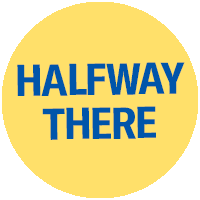 Defending Children’s Right to Remain Silent
Defending Children’s Right to Remain Silent Reform of Legal Justice System for Children
Reform of Legal Justice System for Children Parole Reform
Parole Reform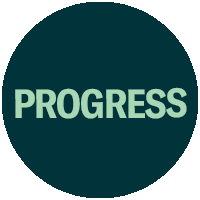 Cannabis Decriminalization
Cannabis Decriminalization Commissary Reporting
Commissary Reporting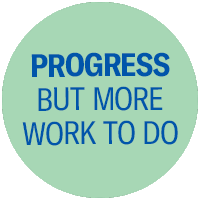 Trust Act
Trust Act Value My Vote Act
Value My Vote Act Central Booking Ballot Drop Box
Central Booking Ballot Drop Box Non-Discrimination in Publicly Funded Schools
Non-Discrimination in Publicly Funded Schools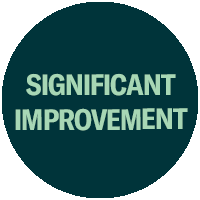 FY22 Budget for Education
FY22 Budget for Education Sweeping $4 Billion Education Reform Bill Passes (FY23 and beyond)
Sweeping $4 Billion Education Reform Bill Passes (FY23 and beyond) Federal Funding for Education and Related Issues
Federal Funding for Education and Related Issues Closing the Digital Divide
Closing the Digital Divide School Construction Funding
School Construction Funding Curriculum Bills Focused on Inclusion and Race Equity
Curriculum Bills Focused on Inclusion and Race Equity  School Discipline Data Collection
School Discipline Data Collection Ending Fees for Summer School Courses
Ending Fees for Summer School Courses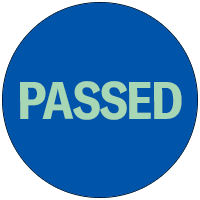 Special Education Learning Continuity Plan Requirement
Special Education Learning Continuity Plan Requirement Physical Restraint and Seclusion Reporting and Training
Physical Restraint and Seclusion Reporting and Training